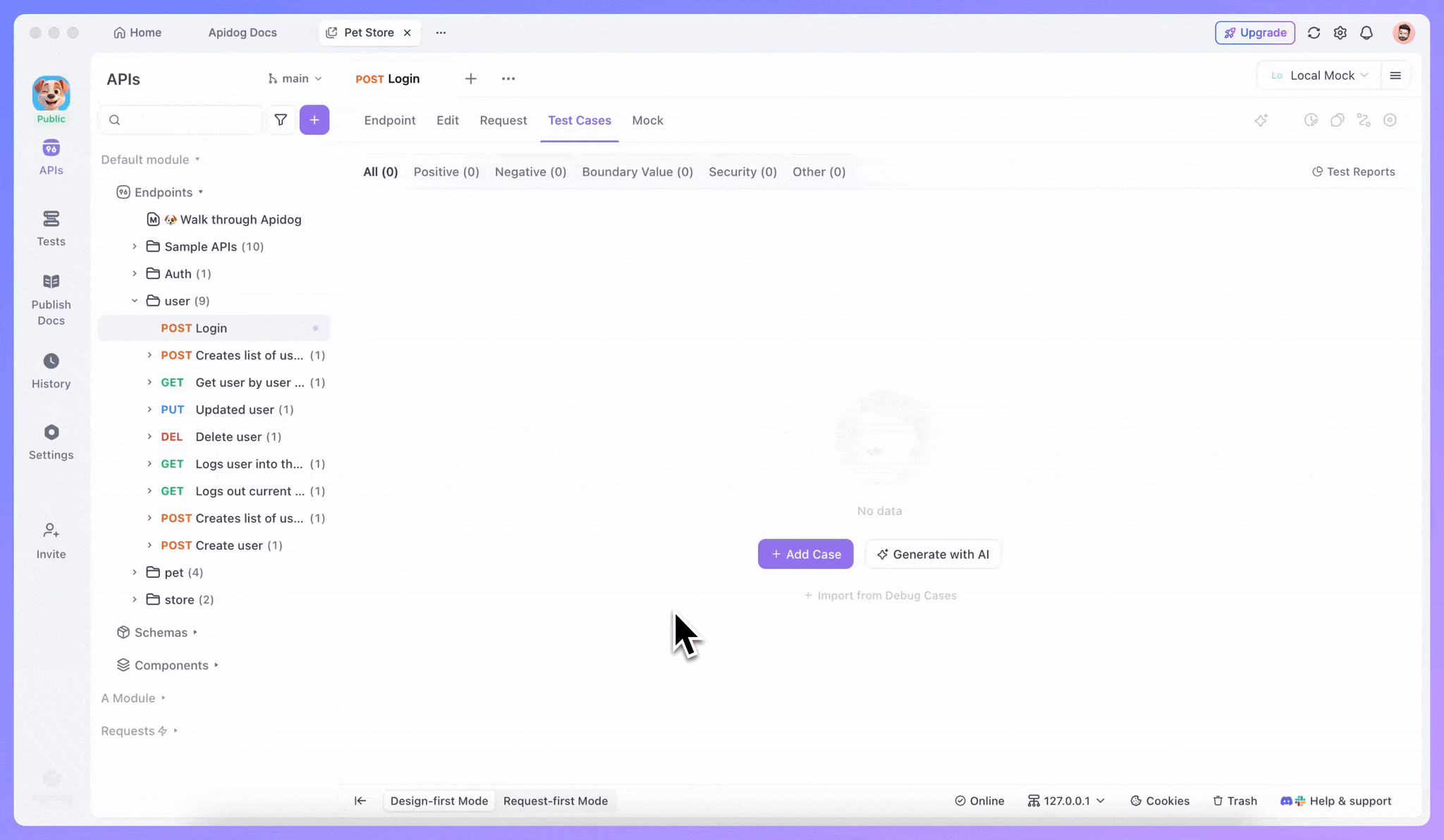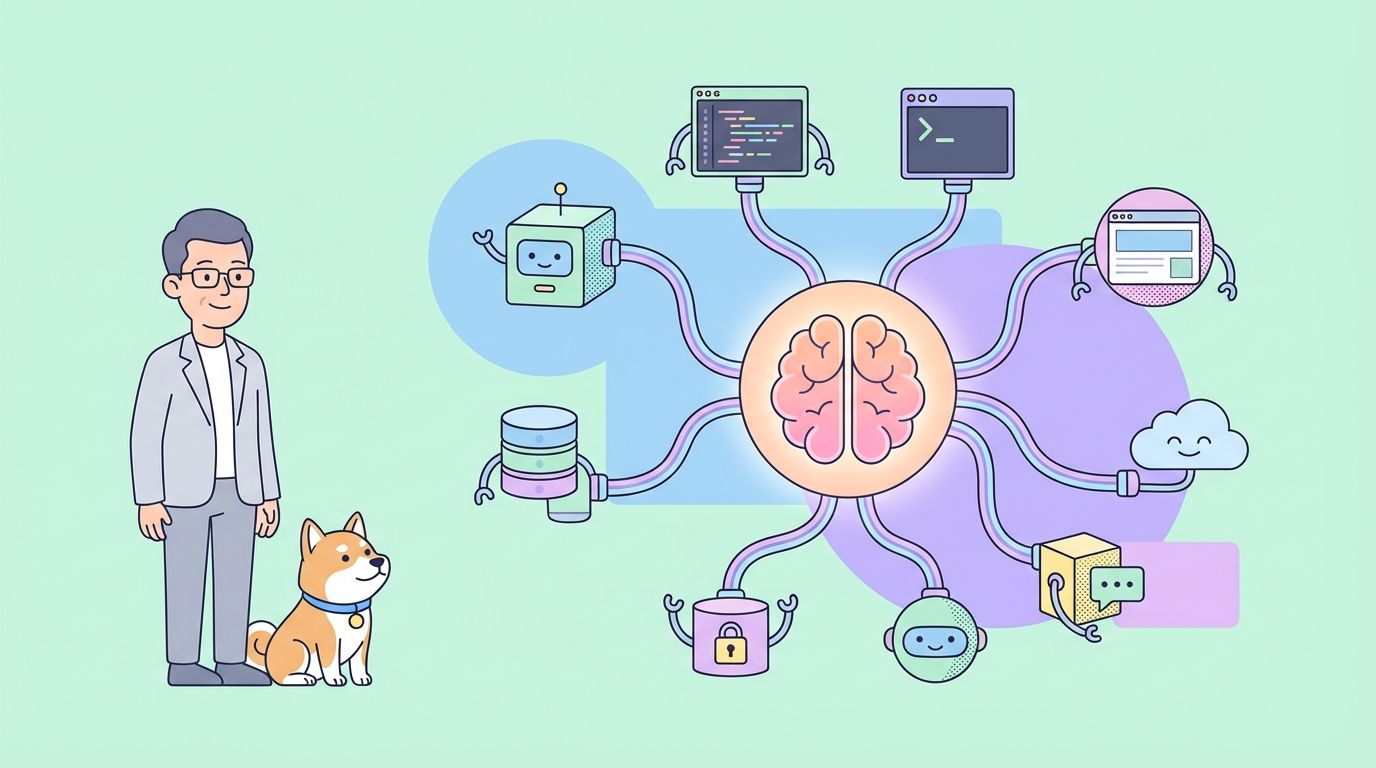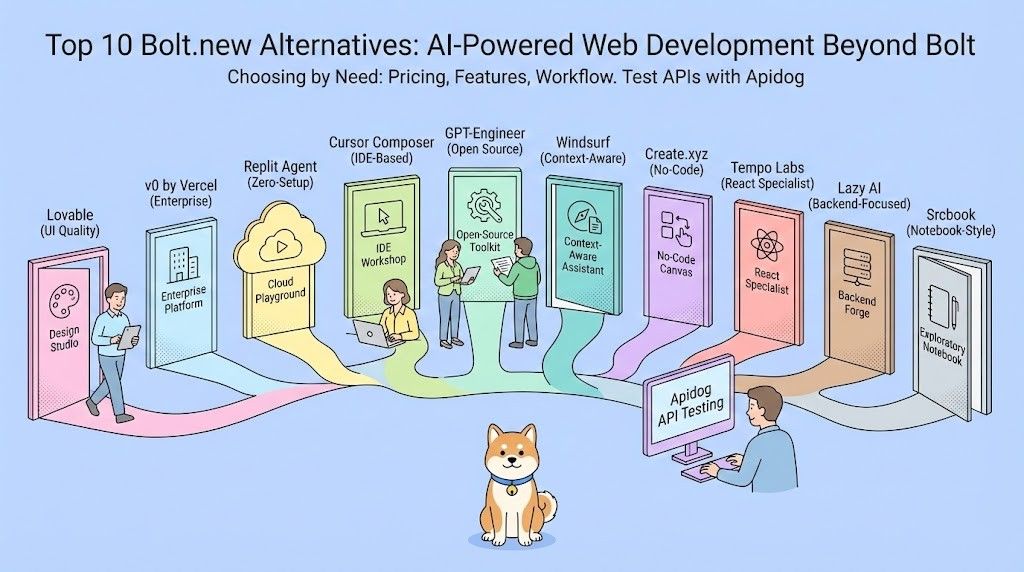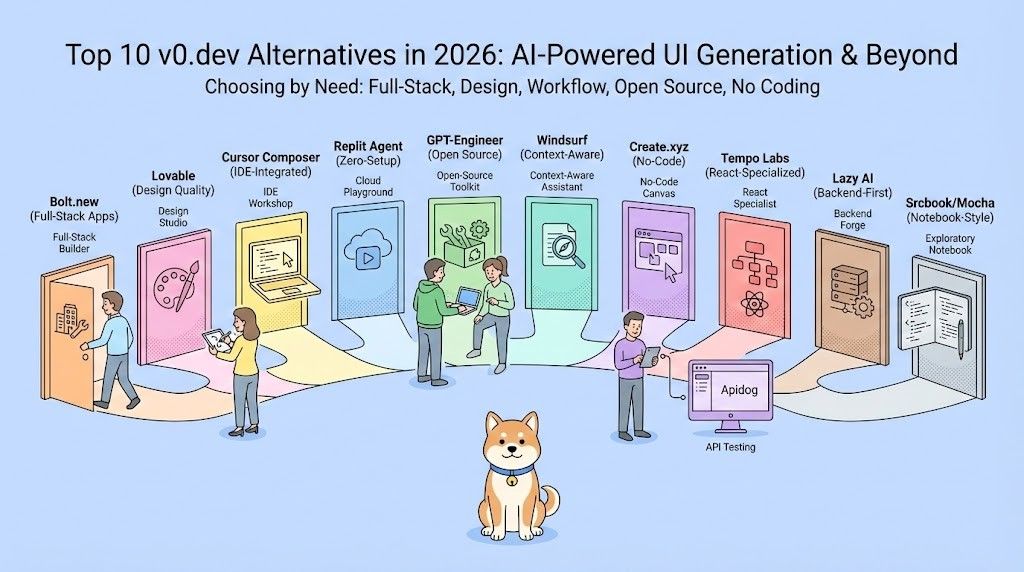In the rapidly accelerating world of software development, the pressure to deliver high-quality products faster than ever is immense. Traditional quality assurance, particularly the manual creation of test cases, has become a significant bottleneck. It's a meticulous, time-consuming process that often fails to keep pace with agile development cycles. This is where the transformative power of artificial intelligence enters the scene.
AI is no longer a futuristic concept; it is a present-day reality that is reshaping the software testing landscape. By leveraging sophisticated algorithms and large language models (LLMs), AI test case generation tools are automating the most tedious aspects of QA, enabling teams to achieve unprecedented levels of efficiency, coverage, and accuracy. This article will delve into the best AI-powered test case generators available today, exploring the platforms that are empowering engineers to move beyond repetitive tasks and focus on strategic quality initiatives.
1. Apidog: The Premier AI Test Case Generation Tool for APIs
Apidog stands out not merely as a utility, but as a comprehensive, all-in-one API development platform that seamlessly integrates AI into every stage of the API lifecycle. While other tools focus on a narrow slice of the testing pie, Apidog provides a unified environment for API design, documentation, debugging, mocking, and, most importantly, intelligent, automated testing. This holistic approach makes it the definitive AI test case generation tool for modern development teams.
At its core, Apidog's AI engine is designed to understand the complete context of your API. By analyzing your OpenAPI specifications, it doesn't just generate random inputs; it crafts a sophisticated suite of tests that cover the full spectrum of validation needs.
Key AI-Powered Test Case Generation Features:
- Multi-Faceted Test Categories: With a single click, you can instruct the AI to generate various types of test cases, ensuring comprehensive coverage. This includes:
- Positive Cases: Verifying the "happy path" functionality.
- Negative Cases: Ensuring the API gracefully handles invalid or unexpected inputs.
- Boundary Cases: Pushing the limits of your defined parameters (e.g., max/min length).
- Security Cases: Performing basic checks for common vulnerabilities.
- Context-Aware Generation: The AI intelligently analyzes your API's parameters, schemas, and authentication requirements. If an endpoint requires credentials, the configuration is automatically referenced, ensuring that generated tests are immediately runnable.
- Customizable and Iterative: Before generation, you can provide additional natural language requirements to tailor the output. Need tests specific to a user role or a particular data format? Simply instruct the AI. You can also configure the number of cases to generate and even compare outputs from different LLM providers (like Claude, OpenAI, or Gemini) to select the most effective test suite.

The workflow is incredibly streamlined. Once generated, test cases appear in a review panel where you can inspect, run, accept, or discard each one individually or in bulk. Accepted cases are instantly saved to your endpoint's documentation, becoming a permanent part of your testing suite. This seamless integration of AI assisted test case generation directly into the API design and documentation process is what sets Apidog apart, solidifying its position as an indispensable tool for any team practicing API-first development.

2. BrowserStack: An AI Test Case Writer for Enhanced Coverage

BrowserStack is a well-established name in the testing world, and its foray into AI-powered test management demonstrates a commitment to modern QA workflows. The platform's AI test case writer is designed to simplify and accelerate the creation of manual test cases, ensuring teams can achieve more comprehensive coverage without the traditional time investment.
BrowserStack's AI engine focuses on flexibility, allowing users to generate test cases from various inputs. This adaptability makes it a strong contender for teams with diverse documentation practices.
Key Features of this AI-Powered Test Case Generator:
- Flexible Input Options: You are not limited to a single source of truth. The AI can generate test cases from Quick Prompts, User Stories, Requirement Documents and Jira and Confluence Links.
- Multiple Output Formats: The tool can generate test cases in plain English for traditional manual testing or in the BDD Gherkin format, aligning with modern development practices.
- Coverage Enhancement: The primary goal is to augment the manual testing process. The AI provides suggestions and generates scenarios that a manual tester might overlook, thereby enhancing overall test coverage.
While BrowserStack's AI capabilities are a powerful addition to its Test Management offering, it's important to note that it is primarily focused on generating the steps for tests, rather than being an integrated API client where those tests can be instantly executed and validated against a live endpoint.
3. Tricentis: AI Assisted Test Case Generation with Tosca Copilot

Tricentis brings AI to its powerful Tosca platform with a feature named "Autonomous Testing". This functionality leverages a secure, responsible AI to generate test cases from natural language, aiming to speed up test authoring and optimize existing test portfolios. The focus here is heavily on enterprise applications, particularly SAP.
This AI assisted test case generation requires more initial setup compared to other tools, as it relies on a well-defined test data file to create actionable test steps.
How this AI Test Case Generation Tool Works:
- Data-Driven Approach: Before generation, you must create a test data file in JSON or natural language text. This file defines the inputs, conditions, and expected outcomes, giving the AI a concrete foundation to build upon. Tricentis provides best practices for creating realistic and complete data sets.
- Natural Language Prompts: Once the data file is ready, you provide the AI with a specific, natural language instruction (e.g., "Create an SAP sales order").
- Automated Execution and Import: The AI, known as Tosca Copilot, takes control of the application under test, executes the steps, and generates the test case. The resulting test artifact can then be imported directly into Tosca Commander for future use.
The human-in-the-loop approach is central to the Tricentis model. The AI generates the test, but the engineer must validate the results before importing, ensuring control and accuracy. Currently, this feature is in public beta and is most effective with SAP applications.
4. TestRail: A Central Hub for AI-Generated Test Cases

While many tools on this list focus on generating test cases, TestRail excels at providing a comprehensive platform to manage, track, and report on them. For teams integrating AI into their workflow, TestRail serves as the essential central repository where AI-generated test suites can live alongside manual and automated tests, providing a single source of truth for all quality assurance activities.
TestRail helps you collect, organize, and prioritize your test cases, ensuring that no critical feature goes untested.
- Planning & Collaboration: TestRail enables teams to build effective test plans collaboratively. You can define test runs, group them into plans for different environments, and track progress towards milestones. Personalized to-do lists and forecasting tools keep your team aligned and on schedule.
- Test Automation & Integrations: A key strength of TestRail is its powerful integration capability. Using the TestRail API, you can easily upload test cases and results from any AI generator or test automation framework (like Selenium, Cypress, or Playwright). This allows you to centralize reporting from dozens of DevOps tools, providing unparalleled visibility into your entire testing landscape. It also integrates seamlessly with issue trackers like Jira and CI/CD tools like Jenkins.
- Test Tracking & Reporting: Maintain compliance and triage risks faster by monitoring all your testing activities in one place. TestRail provides real-time insights with live dashboards and detailed reports, allowing for data-driven decisions. You can track metrics, generate traceability reports from requirements to defects, and schedule reports to be automatically shared with stakeholders.
For teams leveraging AI, TestRail is the perfect partner, providing the robust management and reporting structure needed to make sense of the high volume of tests that AI can generate.
5. AI Test Case Generator for Jira: Native AI within Atlassian

For teams deeply embedded in the Atlassian ecosystem, the AI Test Case Generator for Jira app offers a native solution to convert user stories directly into detailed, actionable test cases. By leveraging a sophisticated LLM, this app operates directly within Jira tickets, streamlining the workflow from requirement to test.
This tool is designed to be format-agnostic, meaning it can interpret user stories regardless of their writing style or structure, making it highly adaptable to different teams' practices.
Highlights of this AI Test Case Generation Tool:
- Structured Test Design: Each generated test case is comprehensive, including a Test Case ID, Title, Description, Test Steps, Expected Results, and Priority. This ensures every test is thorough and ready for execution.
- Enhanced Traceability: The app automatically creates unique IDs that link test cases back to the original user stories, making traceability an inherent part of the testing process.
- Test Management within Jira: Testers can execute each test case as an individual Jira ticket and collate them into distinct projects, such as regression suites, to track pass/fail rates effectively.
By automating test case generation directly within Jira, this app frees up testers to focus on expanding coverage and executing more scenarios, all without leaving their primary project management environment.
6. Virtual Engineering Workbench (VEW) with AWS: An AI Test Case Generator for Automotive Software

The Virtual Engineering Workbench (VEW), built on AWS, is a specialized cloud-based framework designed to streamline development and testing processes for the automotive software industry. By integrating generative AI services, VEW addresses the time-consuming and manual process of creating test cases from extensive requirement documents.
This AI-powered test case generator is tailored for a complex engineering workflow, emphasizing accuracy, validation, and integration with existing management systems.
The AI-Powered Workflow:
- Requirement Import: Testers upload requirement data from their management system into VEW.
- AI-Powered Classification: The system, powered by Amazon Bedrock and models like Anthropic's Claude, first classifies the requirement (e.g., "control function," "functional safety") to provide context.
- Test Case Generation: Based on the requirement and its classification, VEW generates detailed test case descriptions using appropriate black-box testing techniques.
- Human-in-the-Loop Validation: The tester must review, edit, and accept the generated classifications and test cases. This critical step ensures accuracy and maintains expert oversight.
This system has been shown to reduce test case creation time by up to 80%, dramatically improving efficiency while maintaining quality in a safety-critical industry.
7. PractiTest: Leveraging AI for Test Value Scoring

PractiTest is an end-to-end test management platform that uses AI not just for generation but also for optimization. Its AI-powered features are designed to help QA teams make smarter, data-driven decisions about their testing efforts.
The platform introduces two key AI capabilities that set it apart: the "Test Value Score" and the "Smart Fox" AI assistant.
Key AI Capabilities:
- Test Value Score: Using machine learning, PractiTest assesses and assigns a score to each test case, providing a tangible measure of its impact and importance. This allows teams to prioritize high-value tests and optimize their resources effectively.
- Smart Fox AI Assistant: This AI test case writer streamlines the creation process by generating or optimizing test steps. This saves time and ensures clarity and consistency across all test cases, making them easier for any team member to execute.
By combining test management with intelligent scoring and generation, PractiTest offers a unique approach to optimizing the entire QA process.
8. TestRigor: A Generative AI-Driven Automation Platform

TestRigor is a generative AI-driven test automation platform that empowers users to create end-to-end tests from an end-user’s perspective. Its core philosophy is to make test automation accessible to everyone, including manual testers, by allowing tests to be written in plain English.
This approach significantly lowers the barrier to entry for test automation and makes it a powerful AI test case generation tool for teams looking to scale their efforts quickly.
Key Features:
- No-Code Test Creation: Users can create complex automated tests using simple, plain English commands, removing the need for programming expertise.
- Cross-Platform Support: TestRigor supports testing across web, mobile, and desktop environments, providing a single solution for diverse application landscapes.
- CI/CD Integration: The platform seamlessly integrates with popular CI/CD tools and issue tracking systems like Jenkins and Jira, fitting neatly into existing development workflows.
TestRigor's focus on natural language and end-to-end testing makes it a compelling option for teams aiming for broad, user-centric test coverage.
9. Qase’s AIDEN: An AI Assistant for Manual Test Design

Qase's AI assistant, AIDEN, is designed to help QA testers and engineers generate manual test cases directly from requirements. It acts as a co-pilot, taking a user's input and producing a structured set of test cases that can then be reviewed and added to the repository.
Currently in beta, this AI test case writer is a practical tool for teams looking to speed up the initial draft phase of test design.
How to Use AIDEN:
- Input Requirement: A user can input a requirement by linking to an issue in Jira or GitHub, or by manually entering a title and description.
- Generate Test Cases: AIDEN uses Generative AI to produce a list of suggested test cases based on the input.
- Review and Save: The user can review each generated case, delete unsuitable ones, and save the rest to a suite in their repository. Saved cases are automatically labeled "AI" to indicate their origin.
This tool effectively bridges the gap between a raw requirement and a structured set of testable scenarios, saving valuable time and effort in the process.
Conclusion
The era of manual, repetitive test case creation is drawing to a close. As we have explored, a new generation of AI-powered test case generators is fundamentally changing the role of the modern QA professional. These tools are not here to replace human expertise but to augment it, freeing engineers from the drudgery of boilerplate tasks and empowering them to focus on higher-value activities like complex scenario design, exploratory testing, and strategic quality improvements.
From the all-in-one, API-first powerhouse of Apidog—which seamlessly integrates AI generation into the entire API lifecycle—to specialized solutions that operate within Jira or cater to specific industries like automotive, the options are diverse and powerful. Each tool offers a unique approach to leveraging AI, whether it's through natural language prompts, requirement document analysis, or intelligent test optimization.
The key takeaway is clear: adopting an AI test case generation tool is no longer a luxury but a necessity for teams that want to maintain a competitive edge. By embracing this technology, you can dramatically increase your test coverage, accelerate your delivery cycles, and ultimately, build better, more reliable software. The future of QA is intelligent, automated, and collaborative, and these tools are leading the way.



